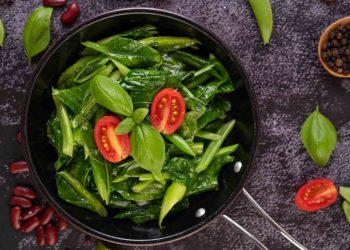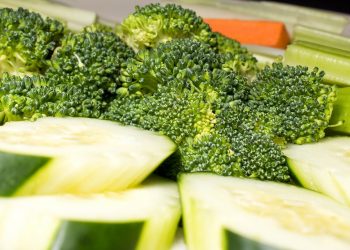Ever found yourself lingering in the produce aisle, captivated by the vibrant hues of summer fruits? Among them, watermelon stands out—not just for its juicy sweetness but also for its potential health benefits. Yes, it’s more than just a refreshing snack on a hot day; it may also have surprising effects on blood circulation, particularly in the penis. So, if you’re curious about how watermelon can enhance circulation in this crucial area, you’re in for a treat.
Contents
Why Blood Circulation Matters
Good blood circulation is essential for overall health, especially when it comes to libido and erections. A well-functioning circulatory system can enhance sexual performance and pleasure. Poor circulation can lead to various issues, including erectile dysfunction (ED), which affects many men at some point in their lives. Understanding how certain foods affect circulation can empower you to make conscious decisions regarding your diet, and watermelon might just be one of the stars in this endeavor.
1. Citrulline: The Natural Booster
Watermelon is rich in an amino acid called citrulline. Research suggests that citrulline can help improve blood flow by promoting the production of nitric oxide, which relaxes blood vessels, similar to how Viagra works but without the side effects. A study published in the Journal of Urology noted that citrulline supplementation improved erection hardness in men with mild erectile dysfunction (Cui et al., 2011)[1].
In addition to its potential impacts on sexual health, citrulline has been linked to enhanced athletic performance, making watermelon an excellent choice both for post-workout recovery and for intimacy.
2. Hydration and Blood Volume
Watermelon contains about 92% water. Staying hydrated is vital for maintaining proper blood volume and circulation. When dehydrated, your body can struggle to circulate blood efficiently, which can have negative effects in the bedroom. Consuming watermelon can help you stay hydrated—thereby promoting better circulation.
Research in Frontiers in Physiology has shown that maintaining hydration is essential for cardiovascular health. Well-hydrated bodies function optimally, ensuring that blood flows freely, reaching all the necessary areas, including the penis (Maughan, 2012)[2].
3. Antioxidant Properties
The vibrant red hue of watermelon comes from lycopene, a powerful antioxidant. Antioxidants help combat oxidative stress, which can negatively affect blood circulation and overall health. Consuming foods rich in lycopene can lower blood pressure and improve heart health, both crucial for maintaining adequate circulation.
A study from the American Journal of Clinical Nutrition highlighted that lycopene supplementation could lead to improved vascular function in humans (Rong et al., 2015)[3]. The better your heart and vascular system function, the more blood can flow where it needs to go.
4. Nutrient-Rich Profile
Aside from citrulline and lycopene, watermelon boasts various vitamins and minerals that promote overall health. Vitamins A and C found in watermelon are essential for maintaining healthy blood vessels. Vitamin C, in particular, plays a significant role in collagen formation, which helps keep your blood vessels flexible and strong.
The benefits of a nutrient-rich diet should not be understated. A well-rounded diet supports physiological functions, including circulation. While watermelon alone may not be a cure-all, integrating it into a balanced diet can contribute to maintaining vitality, both in and out of the bedroom.
5. Low Caloric Content and Weight Management
Watermelon is low in calories, making it an ideal choice for those interested in maintaining a healthy weight. Excess weight can negatively impact circulation and blood flow, and losing weight can often help alleviate some issues related to ED. So, enjoying watermelon as a guilt-free snack may help you manage your weight effectively.
According to a study published in Obesity Reviews, managing body weight through diet can significantly improve erectile function in men (Jiang et al., 2014)[4]. By incorporating watermelon into your diet, you can enjoy a delicious treat that supports your weight management goals.
Limitations and Considerations
While watermelon has many potential benefits for circulation, it is crucial to remember that no single food can address all health issues. Individual factors—such as lifestyle choices, overall diet, and underlying medical conditions—play a significant role in one’s sexual and circulatory health.
Moreover, those with conditions like diabetes should pay attention to their overall sugar intake, even from natural sources like fruit. Always consult with a healthcare provider for tailored advice that considers your health history and individual circumstances.
FAQs
1. Can watermelon help with erectile dysfunction?
While watermelon can improve blood circulation due to its citrulline content, it’s not a definitive cure for erectile dysfunction. It’s best used as part of a balanced diet and a healthy lifestyle.
2. How much watermelon should I eat for the best results?
There’s no set amount, but integrating a few servings of watermelon into your weekly diet can be beneficial. Listen to your body and adjust according to your preferences and any dietary restrictions.
3. Are there any side effects from eating too much watermelon?
Generally, watermelon is safe for most people. However, excessive consumption may lead to gastrointestinal discomfort due to its high water content. Moderation is key.
4. Can other fruits provide similar benefits?
Yes, several fruits—such as strawberries, blueberries, and cherries—are also known for their positive effects on circulation and overall health due to their antioxidant content.
Conclusion
Watermelon might not solve every circulation-related concern, but its unique profile of nutrients, including citrulline and antioxidants, can play a role in supporting better blood flow and enhancing sexual health. By including watermelon in your diet, you can enjoy its refreshing taste while potentially reaping several health benefits.
Ultimately, a comprehensive approach that includes a balanced diet, regular exercise, and proper hydration will yield the best results for your overall health and well-being. Enjoying summer’s offerings, like watermelon, just adds a sweet touch to the journey toward vibrant health.
References
- Cui, Y., et al. (2011). “Citrulline supplementation improves erection hardness in men with mild erectile dysfunction.” Journal of Urology. URL: https://www.jurology.com/
- Maughan, R. J. (2012). “Hydration in sport and exercise.” Frontiers in Physiology. URL: https://www.frontiersin.org/articles/10.3389/fphys.2012.00131/full
- Rong, Y., et al. (2015). “Lycopene supplementation improves vascular function in humans.” American Journal of Clinical Nutrition. URL: https://academic.oup.com/ajcn
- Jiang, Y., et al. (2014). “Weight management and erectile function: A systematic review.” Obesity Reviews. URL: https://onlinelibrary.wiley.com/doi/full/10.1111/obr.12220
Get Your FREE Natural Health Guide!
Subscribe now and receive our exclusive ebook packed with natural health tips, practical wellness advice, and easy lifestyle changes — delivered straight to your inbox.















